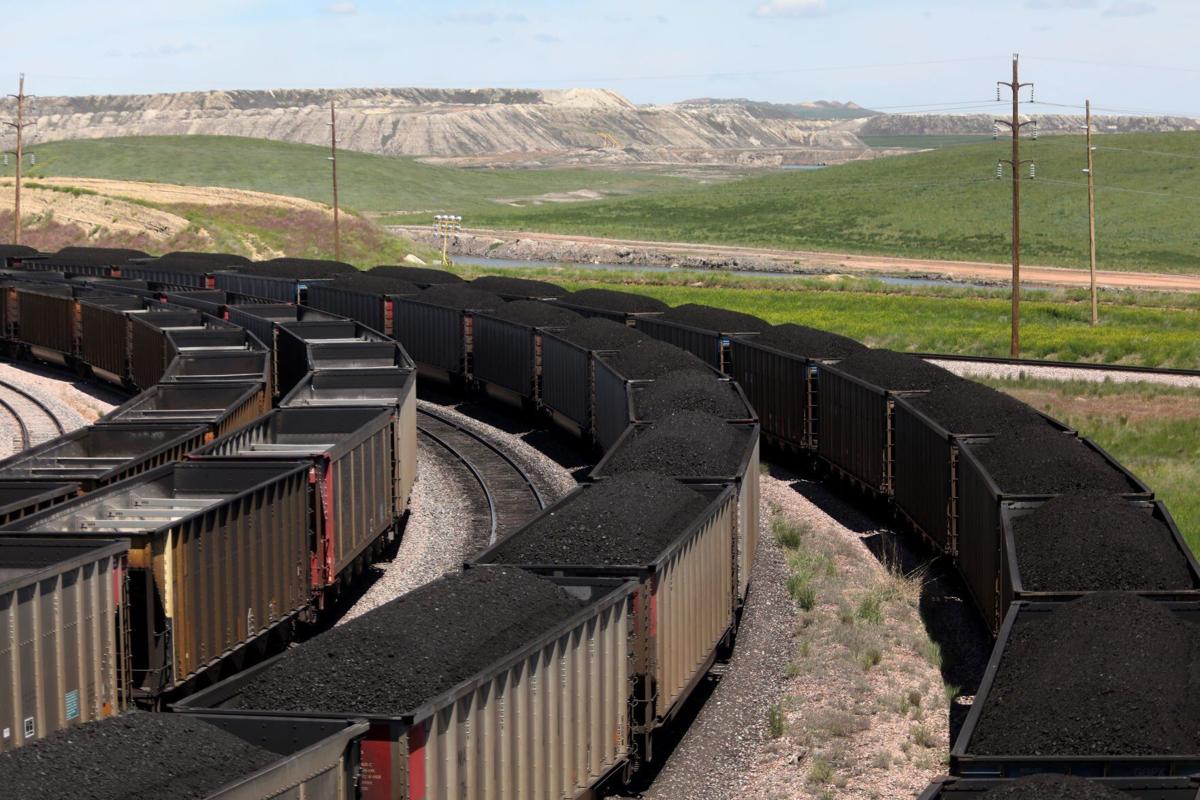High Wyoming Coal Prices Muted by Added Production Costs, Companies Report

May 2, 2022 - This year started very differently for the two coal giants that own Wyoming’s biggest mines.
Peabody Energy, whose Powder River Basin holdings include the North Antelope Rochelle Mine — the biggest coal mine in the country — as well as the Caballo and Rawhide mines, reported a net loss of $119.5 million in the first quarter of 2022.
The company has yielded shaky results since the start of the pandemic, informing shareholders of net losses totaling more than $2 billion over seven consecutive quarters before it announced a net gain of $513 million in the fourth quarter of 2021.
Natural gas prices above about $3 per British thermal unit make Powder River Basin coal a cost-competitive power source. With gas rising to nearly double that in the first quarter, coal was attractive to utilities, even at the unusually high spot prices that persisted through the quarter.

Rail cars loaded with coal sit on the tracks in June 2019 at Arch Coal's Black Thunder mine near Wright. Arch reported this week its second consecutive quarter of record earnings.
Photo: Cayla Nimmo file, Star-Tribune
The price of Peabody’s Powder River Basin coal went up more than a dollar per ton compared with last year, but an even larger spike in production costs, combined with difficulties securing rail transport, meant the company’s mines brought in earnings of just $7.6 million last quarter, well below the $22.3 million they earned the previous quarter and the $30.1 million earned in the first quarter of 2021.
“In the first quarter, we set the stage to realize strong results for the remainder of the year,” Peabody President and CEO Jim Grech said during a call with investors on Thursday.
Sustained demand, he said, positions the company “to deliver a strong 2022.”
Peabody sold 20.6 million tons of Powder River Basin coal this quarter at an average price of $12.18 per ton, up from $11.01 per ton in the first quarter of 2021. The company expects to increase sales in the second and third quarters of 2022, and anticipates selling that coal at higher prices in the third and fourth quarters.
It has virtually all of its planned 2022 production under contract and roughly 59 million tons already committed for 2023.
“As we work through logistics challenges to meet strong annual customer demand,” Grech said, Peabody is preparing to “deliver higher volumes for the remainder 2022 by continuing to remove overburden, completing equipment overhauls and recruiting and training an expanded workforce.”
Meanwhile, Arch Resources, owner of Black Thunder Coal Mine — the country’s second-biggest — and the Coal Creek Mine, which is scheduled to close this year, reported net income of $271.9 million for the first quarter, marking its second straight quarter of record earnings, despite also facing transport issues.
Arch, like Peabody, struggled early in the pandemic, recording a net loss of $272.1 million across the four quarters of 2020. But it recovered more quickly, with a net gain of $265.1 in 2021.
The two companies’ approaches have diverged as they navigate the decline of the coal industry. Peabody has continued to prioritize thermal coal from the Powder River Basin alongside its holdings in the thermal and metallurgical export markets, while Arch has chiefly focused on metallurgical coal, which is used in steelmaking.
Arch, unlike Peabody, has no plans to invest in growing its Powder River Basin operations. The company has contributed $100 million to a reclamation fund for Black Thunder since the fourth quarter of 2022 and expects to hit its goal of $130 million this summer, for use during “final reclamation at Black Thunder several years from now,” said Matt Giljum, Arch’s chief financial officer.
While Arch’s first-quarter profit was driven primarily by high metallurgical coal prices, John Drexler, Arch’s chief operating officer, noted during a call with investors Tuesday that the company created a “tremendous asset” in 2021, when it “built out our thermal contract book for 2022, 2023 and beyond at highly attractive prices.”
The company has essentially sold out its Powder River Basin coal for 2022, signing contracts for 77.9 million tons of thermal coal at an average price of $17.96 per ton (and anticipating higher export market prices later this year for a few million of those tons).
This quarter alone, it sold 18.2 million tons of coal at an average price of $18.85 per ton — an increase of nearly six tons, and more than $5 per ton, from the first quarter of 2021.
Drexler didn’t disclose Arch’s 2023 numbers, but said the contract prices, though lower than 2022, remain “well above historical averages.”

